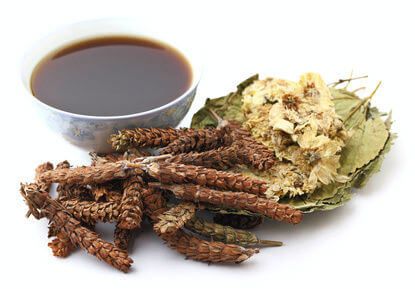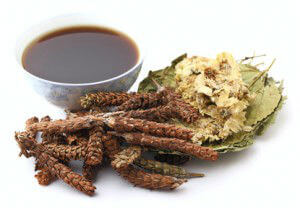
Herbs are balancers, they do not promote dramatic effects like the ones seen with synthetic drugs. Herbs help the body regulate itself while most drugs overpower the body’s natural healing mechanism.
You may have heard a lot about the use of herbs for medicine. Historical records of Native Americans, Romans, Egyptians, Persians and Hebrew medical practices show that herbs were an integral part of medical practices and used to treat almost every known illness.
Some people may not know this, but, the pharmaceutical industry was originally based on the ability to isolate ingredients and make them available in a pure form. However, herbalists argue that considering the whole plant helps balance the more powerful ingredients.
Herbs contain synergists, buffers and counterbalances that work together with the more powerful ingredients. When herbs are used in their complete form, the body’s natural healing process uses all the parts to balance the body and restore health.
Herbal remedies were used in America until the early 1900’s when the modern pharmaceutical industry started to isolate individual active compounds and creating drugs around them. This was the beginning of a medical system known as allopathy, which treats an illness by creating a condition in the body that does not allow the disease to thrive. This has created a society reliant on synthetic, commercial drugs.
Today, however, people are starting to take a more serious look at the side effects of powerful synthetic drugs and more are turning toward herbs to naturally fight off chronic ailments. Herbal remedies can help nourish the immune system, stimulate new liver tissue, increase the strength of the adrenal glands, counterbalance the adverse effects of chemical therapies and balance the endocrine system, among other things.
Type of Herbs
Herbs fall into two different categories, tonics and stimulating. Tonic herbs help the cells, tissues and organs maintain tone and balance. It takes most tonics 3 to 6 months to start to gently strengthen systems, so it is important to be patient. Stimulating herbs are generally those that have a much stronger influence and are taken to treat a particular ailment. They should be taken in small doses for a short period of time.
Using Medicinal Herbs
You don’t have to grow your own herbs in order to stock your natural medicine cabinet. Commercial herbal preparations are available in a number of forms including bulk herbs, medicinal herbs, teas, oil, tinctures, fluid extracts, capsules or tablets.
Essential Oils
Essential oils are a highly concentrated extract that is obtained by steam distillation or cold pressing from flowers, berries, seeds, gums, roots, bark, needles or resins of numerous plants. They contain natural hormones, antibiotics, vitamins and antiseptics.
Also known as volatile oils, because they evaporate easily in the air, essential oils can irritate the mucous membranes of the stomach lining if they are taken internally. A few drops in bathwater, inhalants, poultices or on the skin is all that is usually necessary. Essential oils are used to treat a number of conditions, a few of which include insomnia, impotence, arthritis and respiratory disorders.
Teas
For as long as humans could warm water, they have used teas. Herbal teas can be made from any part of a plant including the roots, leaves, flowers,seeds, berries or bark. Herbal teas sometimes contain thousands of different compounds that have their own distinctive healing capabilities. Many people use herbal teas for relieving mild to moderate ailments such as upset stomach, sore throat, stuffy nose, insomnia or coughs, according to botanical expert Varro Tyler Ph.D.
Purchase organic herbal tea in loose form for best results or you can also crumble leaves and flowers and break roots and bark into pieces and place them in a ceramic container or jar. Cover the loose tea with boiling water and allow it to steep for about four to six minutes.
Some herbal teas such as chamomile, need to be steeped for about fifteen minutes for the full effect. Other herbs such as ginseng roots can actually be boiled and astragalus can actually be simmered for several hours. A decoction can also be made from thicker plant parts such as bark, roots, seeds or berries.
Herbal Vinegars
Herbal vinegars are great for medicine and salad dressing. You can make an herbal vinegar by adding herbs of your choice to raw apple cider vinegar, balsamic vinegar, rice vinegar, or malt vinegar (though the jury is out as to whether malt vinegar is safe for those who need to be gluten-free).
The herbs need to steep for four days; be sure to shake the container daily. After four days, strain the herbs through a straining cloth and pour into a dark glass container. Herbal vinegars make excellent salad dressings or marinades.
Plasters, Compresses and Poultices
Herbal remedies can safely be applied to the skin by using plasters and compresses which are basically cotton bandages soaked in herbal infusions and wrapped around an area. Compresses are warm and often very comforting.
Poultices are made by moistening herbs, placing them on the skin and holding them in place with a bandage. You can also use moistened herbal tea bags to soothe and heal such as chamomile which relieves itching and inflammation associated with insect bites or eczema.
 Tips and Precautions When Considering Herbs
Tips and Precautions When Considering Herbs
Although most herbs are safe you have to be very careful because some herbal preparations can be toxic and cause you to have allergic reactions or interfere with medicine you are taking. Here are some things to keep in mind when considering using herbs:
- Use herbs for minor ailments only – not serious life threatening conditions
- Use only the recommended amounts for the suggested period of time
- Use the correct herb – seek guidance if necessary from a professional herbalist
- Always use the correct part of the plant
- Always start with a small amount of herb if it is your first time
- Don’t use herbs if you are pregnant or nursing
- Consult a healthcare practitioner before giving herbs to children
- Select only quality herbs from a reputable source. Certified organic is best.
Note: You should always speak to a healthcare professional before using an herbal treatment.
-The Alternative Daily

